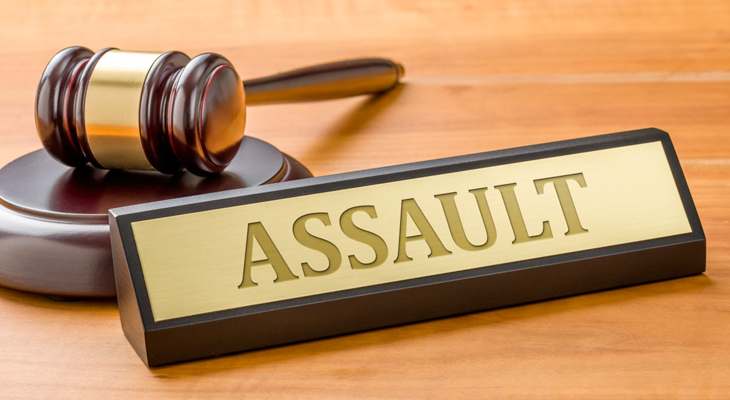
Despite Canada’s strict regulations and severe fines and penalties, assault is one of the most widespread violent crimes reported throughout the country. While most people have the misconception that domestic, sexual, and other types of violent assaults are a thing in third-world countries, their existence and prevalence in emerging and developed economies can not be denied.
According to Statistics Canada, a total of 8.3 million incidents of sexual aggression, robbery, physical assault, forced entry, theft of vehicles (or parts), stealing of personal property, and vandalism were reported in 2019 alone. Every year, about 600,000 sexual assaults surface in Canada. While these numbers may appear relatively lower compared to other nations, they are not very pleasant for a country once ranked in the top ten most peaceful countries in the world.
While assault victims undergo a significant amount of mental pressure and bear lifelong impacts, those who are unfairly charged with such crimes are no less ill-fated. From the above discussion, it is clear that any type of assault is a serious offense with severe consequences.
If you are charged with such a crime, know that this is going to permanently tarnish your criminal record, reputation, and life. You will not be able to pursue a career in childcare, medicine, and teaching. Besides the career downfall, you will also face travel restrictions to certain countries like the US.
Clearly, there isn’t a need to emphasize how crucial it is for you to defend yourself against such charges, even if the charges are of the most minute nature. In this regard, it is beneficial to hire only the most reliable criminal defense lawyers in Edmonton.
In order to help you adequately comprehend the type of situation you may encounter, this blog will discuss the various aspects of assault charges in Canada in detail.
What Is Assault?
Unlike the widespread perception, assault is not as narrowly defined as a physically violent attack or sexual misbehaviour. In truth, a mere threat to cause harm may be regarded as an assault. Simply put, assault is the intentional use of force on another person without the second person’s consent. Assault does not necessarily involve physical contact. A gesture to cause harm also counts as assault.
Section 265(1) defines assault as follows:
A person commits an assault when
(a) without the consent of another person, he applies force intentionally to that other person, directly or indirectly;
(b) he attempts or threatens, by an act or a gesture, to apply force to another person, if he has, or causes that other person to believe on reasonable grounds that he has, present ability to effect his purpose; or
(c) while openly wearing or carrying a weapon or an imitation thereof, he accosts or impedes another person or begs.
In Canada, the Criminal Code deals with this offense and sets the relevant penalties. It defines assault into three levels:
Common Assault (Level 1)
This is the mildest form of assault in Canada. Although the code does not explicitly define this type of assault, you may regard it as assaults that do not involve the use of weapons or don’t cause serious bodily harm. From slaps to punches, kicks, shoves, pushes, and anything that causes minor injury such as a bruise or a scratch will fall into this category.
Depending on whether you are facing a summary or an indictable conviction, a maximum penalty of 5 years of imprisonment applies to this category.
Read Also: How Serious Are Assault Charges In Canada?
Assault Causing Bodily Harm (Level 2)
According to the code, bodily harm is “any hurt or injury to a person that interferes with the health or comfort of the person and that is more than merely transient or trifling in nature.”
According to Section 267:
A person is guilty of an indictable offense and liable to imprisonment for a term of not more than ten years or is guilty of an offense punishable on summary conviction who, in committing an assault,
(a) carries, uses, or threatens to use a weapon or an imitation thereof,
(b) causes bodily harm to the complainant, or
(c) chokes, suffocates, or strangles the complainant.
This offense is more severe than common assault and may result in a maximum imprisonment of 10 years.
Aggravated Assault (Level 3)
This is the most severe type of assault for which summary conviction is unavailable. According to Section 268 (1):
A person commits aggravated assault if they wound, maim, disfigure or endanger the complainant’s life. This kind of offense may earn you a maximum 14-year sentence in jail.
Defense Against Assault charges
Assault offenses are a sensitive matter and should be left in the hands of dependable assault lawyers. The most common types of defenses used to counteract such charges include:
- Consents
- Accidents
- Self-defense
For more information on defenses, book a free consultation on our website.
About Slaferek Law
We have spent years serving defending individuals and the Edmonton community against a variety of charges. Our experience and proficiency make us the best in what we do. Learn more bout Slaferek Law and our practice areas.
Facing a severe assault charge? Contact us now.
